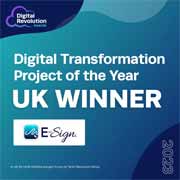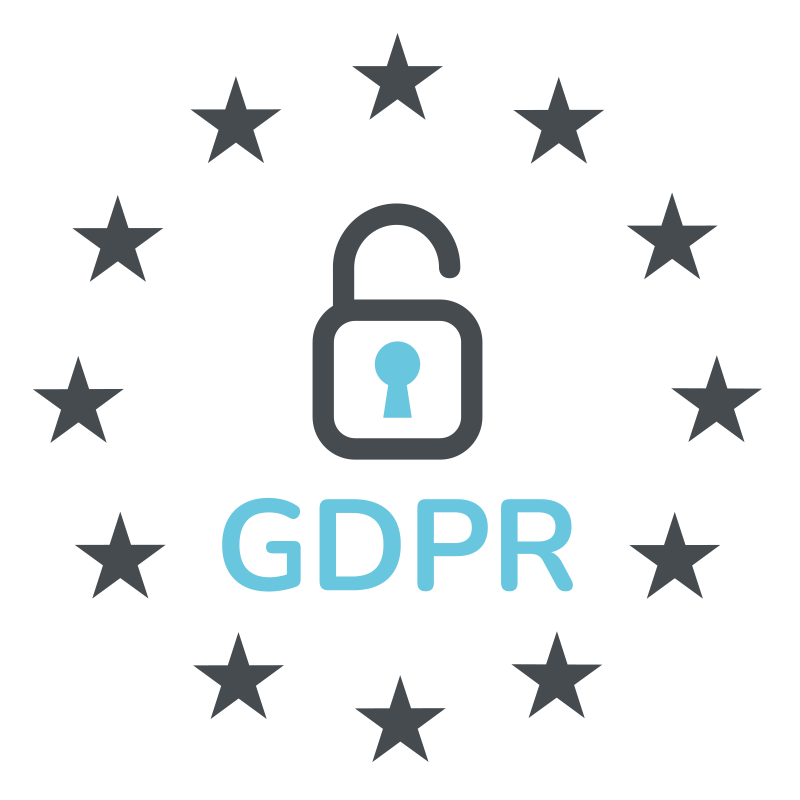
Questions on the Legality of Electronic Signatures Answered
19th Jun, 2020
What are the legal requirements of electronic signatures?
These days, digitalisation is helping to make the way we live and the way we work a lot easier. With the rest of our lives moving more online, why should our businesses be dependent on traditional signatures? Electronic signatures are revolutionizing the way we sign documents. In a modern, fast-pace business environment, the ability to sign documents with a touch of a button is essential for optimising internal processes and external agreements. When considering switching to electronic signatures, most businesses have questions about the legality and security of this modern technology. At E-Sign, we decided to answer those questions for you, so you have the ultimate peace of mind that your electronic signature solution is legally binding and secure.
What Are Electronic Signatures?
Just like a handwritten, or ‘wet’ signature, an electronic signature is a digital indication of a person’s intent to agree to the content of a document or a set of data to which the signature relates. Electronic signatures are a lot more than just a computerised version of your handwritten signature. They use data encryption and mathematical algorithms to verify a signature, whilst tracking the signatory’s IP address and providing a time and date stamp to generate an audit trail.
How Do Electronic Signatures Work?
Electronic signatures use mathematical algorithms to generate a ‘hash’, which is then encrypted as the document is signed. When an e-signature is sent, a second algorithm is used to create a second hash, whilst also decrypting the original hash from the signed document. If the two hashes match, the signature is valid. This process helps to verify a signature, ensuring the signed document is valid and legal.
Are Electronic Signatures Legally Binding?
Yes! Electronic signatures have been legally binding in the UK since 2000, with the introduction of the Electronic Communication Act 2000. Since July 2016, the UK must also adhere to the EU’s eIDAS regulations, which provides a regulated framework for secure electronic identification and verification across Europe. Further to this, in September 2019, the Law Commission published a comprehensive report on the legality of electronic signatures in demonstrating ‘intention’ to agree to the contents of the document.
Are Electronic Signatures Safe?
When it comes to the increasing digitalization of office life, businesses must also contend with a greater risk of fraud or dishonesty. In the case of electronic signatures, the risk of fraudulent activity and security breaches is all but eliminated with secure identification and verification- all backed up with a full audit history documenting the author, signers, devices used, IP addresses, time and date stamps for traceability and transparency.
Why Should I Switch to E-Signatures?
Electronic signatures can bring a plethora of benefits to a business. They can save you time and money, whilst helping to improve productivity by utilising streamlined secure document processes. With electronic signatures, your business can go paperless, saving you money on printing costs such as paper, ink and toner, as well as postage fees- small costs that can add up to big savings. Electronic signatures are ultimately more efficient than traditional signatures. In a modern business environment, waiting 2-3 days for postage is simply not an option for time sensitive contracts or business deals. Using electronic signatures, you can ensure instantaneous delivery and rapid turnaround speeds, so there’s no unnecessary waiting or delays.
Are Electronic Signatures Permissible in Court?
Yes, electronic signatures are permissible in court. The electronic signature itself demonstrates the intention to agree to the contents of the document. They can also provide additional evidence of ‘intention’ that handwritten signatures cannot supply. With handwritten signatures, the validity is established by comparing copies of the signature with testimonies from handwriting expert or witnesses of the signing. Thanks to the electronic signature’s audit trail which contains information such as the IP address, location and date/time stamp, determining the authenticity of an electronic signature is actually easier, time-efficient and more cost effective.
What Are the Different Types of Electronic Signature?
There are three different types of electronic signatures:
- Simple electronic signatures – can be a tick box plus declaration and scanned signature
- Advanced electronic signatures – can identify the signatory, uniquely link the signature to the signatory and are linked to data that can detect any changes made.
- Qualified electronic signatures –an advanced electronic signature which is created by a qualified electronic signature creation device and based on a qualified certificate for electronic signatures.
All of the above are legally binding, but advanced electronic signatures can offer greater authentication, integrity and non-repudiation, and are therefore more suited to higher value transactions.
When Can’t You Use E-Signatures?
Whilst most businesses will accept electronically signed documents, some statutory bodies, such as the HM Revenue & Customs and the Land Registry do not currently accept electronic signatures. There are also complications around witnessing electronic signatures which make them unsuitable in certain circumstances. If in doubt, it’s best to ask the recipient whether they will accept an electronically signed document.
Ready to equip your business with an industry-leading e-signature? E-Sign is a leading provider of electronic signature solutions providing professional Electronic Signatures, Form Builder, Web Form, ID Checker and Personalised Email solutions to businesses across the UK.
To find out more about our E-Sign solutions and how they can transform your business with an electronic signature, give us a call today on (+44) 0330 057 3001 or email us at info@www.esign.co.uk











